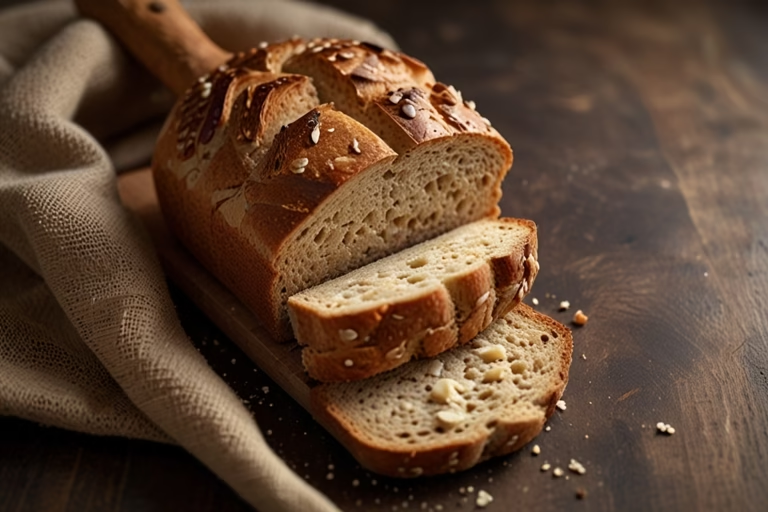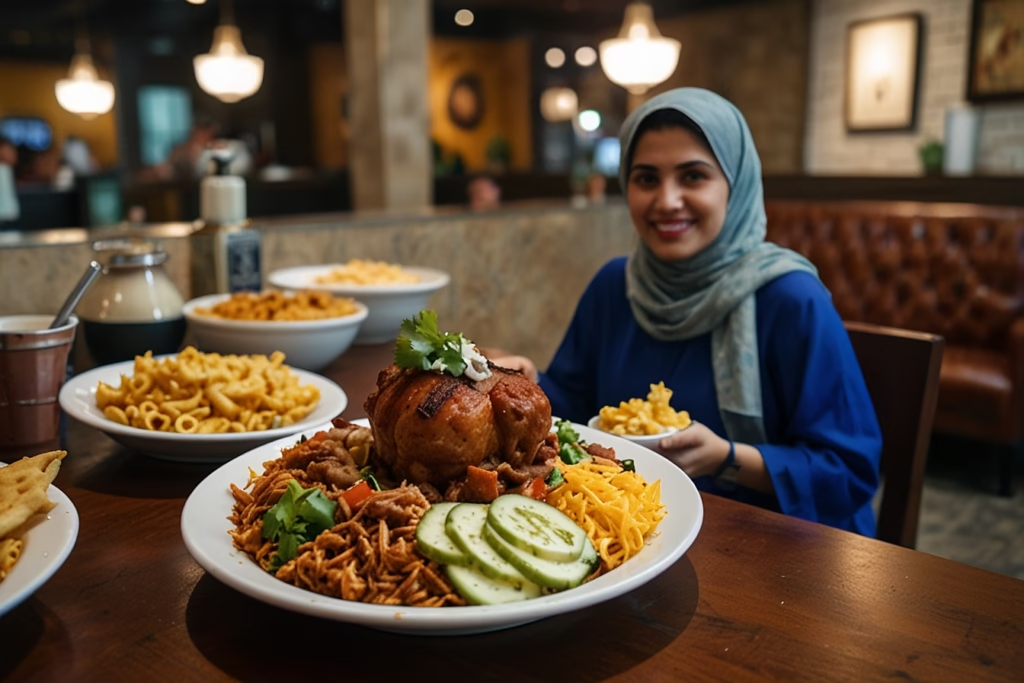When your child (or another family member) is newly diagnosed with celiac disease or a gluten sensitivity, it can feel overwhelming—especially if you also adhere to a halal diet. Suddenly, the world of meal planning, grocery shopping, and family dinners takes on new challenges. But rest assured, with some planning and knowledge, it’s entirely possible to maintain a healthy, delicious, and faith-compliant diet that is both gluten-free and halal.
Understanding Celiac Disease and Gluten Sensitivities
Celiac disease is an autoimmune disorder in which the ingestion of gluten (a protein found in wheat, barley, and rye) damages the small intestine. This can lead to symptoms like abdominal pain, bloating, diarrhea, fatigue, and malnutrition if not managed properly. A gluten-free diet is the only medically accepted treatment, allowing the intestine to heal and preventing long-term complications.
Beyond celiac disease, individuals can also have non-celiac gluten sensitivities or wheat allergies that similarly require them to avoid gluten. The difference is in the medical mechanisms and severity of symptoms, but the dietary solution (avoiding gluten-containing grains) remains the same.
Balancing Gluten-Free and Halal Requirements
A halal diet follows Islamic dietary guidelines, which prohibit pork and alcohol while requiring meat and poultry to be prepared according to specific slaughtering practices. For many families, complying with both halal and gluten-free standards can feel daunting—but it doesn’t have to be!
- Check for Halal Certification: Look for logos from recognized agencies like IFANCA, HFA, or other reputable certifiers.
- Read Labels Carefully: Gluten can appear in unexpected places—sauces, marinades, spice blends—so always verify that the product is labeled gluten-free.
- Avoid Cross-Contamination: If you have gluten-containing items at home, consider using separate cookware, cutting boards, and utensils. Be careful about shared appliances like toasters.
Gluten-Free, Halal-Friendly Food Options
There are several grocery store items in the U.S. that are both halal-certified and gluten-free. Large supermarkets often carry them in specialty sections, and many local halal markets stock smaller, regional brands.
Frozen Entrées and Meats
- Saffron Road: Offers a range of halal-certified frozen meals, with some clearly labeled gluten-free (like their Chicken Tikka Masala and Lamb Saag).
- Midamar: Specializes in halal meat products; some plain or lightly seasoned items are also gluten-free.
- Crescent Foods: Carries halal-certified poultry that’s sometimes available in gluten-free varieties (such as unbreaded chicken breasts or tenders).
Naturally Gluten-Free Staples
- Rice, Lentils, and Chickpeas: Essential in many cuisines. They’re versatile and naturally gluten-free.
- Chickpea (Gram) Flour: Ideal for making pakoras, flatbreads, or even gluten-free samosas.
- Fresh Produce: Fruits, vegetables, and wholesome legumes are safe, nutritious staples.
Specialty Items
- Gluten-Free Breads and Wraps: Check your local halal bakery or grocery freezer section for corn tortillas, chickpea flour wraps, or other specialty gluten-free flatbreads.
- Local or Small Brands: Some local halal grocers might stock unique items like gluten-free spinach pastries or vegetable cutlets made with alternative flours.
Gluten Free Chicken Nuggets
There is a mother who has been crafting her own gluten-free, chicken nuggets for her kids using simple, wholesome ingredients. What makes these nuggets special is that they’re:
- Breaded with Gluten-Free Coatings: She often uses alternative flours like chickpea flour or a prepackaged gluten-free blend.
- Air Fryer Ready: Quick to prepare and great for busy weeknights or packed lunches.
- Halal-Friendly: She sources her chicken from halal-certified providers, ensuring the integrity of the product.
This is a fantastic example of how parents can get creative in the kitchen to meet dual dietary needs. If you live in or near Plano, consider reaching out through local parenting groups or community networks to see if you can find or replicate this idea in your own home. Sometimes, connecting with other families who follow similar guidelines can lead to recipe swaps, group cooking sessions, or even co-ops that share meal-prep duties.
Tips for Navigating Grocery Stores and Meal Prep
- Plan Ahead
- Make a weekly meal plan to avoid last-minute uncertainty. Identify recipes you want to try and list out all needed ingredients.
- Focus on Whole Foods
- Rice, fresh vegetables, fruits, beans, and high-quality halal meats are naturally gluten-free and safe choices.
- Separate Cooking Spaces
- If you have gluten-containing products at home, designate an area or specific cookware for gluten-free items to prevent cross-contamination.
- Explore Online Retailers
- If local stores have limited selections, online shopping can unlock a wider range of gluten-free halal products. Brands like Saffron Road, Midamar, and Crescent Foods can often be found on websites like Amazon or through their own online portals.
- Consult with a Dietitian
- If you’re overwhelmed, seek out a registered dietitian who understands both celiac disease and halal requirements. They can help tailor an eating plan that fits your family’s needs.
Encouragement and Community Support
Transitioning to a gluten-free and halal diet may feel challenging initially, but with patience and perseverance, you’ll find an array of safe and delicious options. Remember to:
- Celebrate Small Wins: Each time you successfully try a new recipe or discover a tasty gluten-free, halal product, it’s a step closer to a comfortable routine.
- Stay Connected: Online forums, Facebook groups, and local community events can provide invaluable support and tips from families who’ve navigated similar dietary roads.
- Keep Learning: Ingredients, food science, and product formulations evolve constantly. Continue reading labels and staying informed about new halal-certified and gluten-free brands.
By focusing on what you can enjoy rather than what you must avoid, you’ll be able to prepare meals that delight your child and ensure they get the nutrition they need—without compromising on religious or medical guidelines. With thoughtful planning and community support, the journey to a fulfilling gluten-free, halal lifestyle can be both delicious and rewarding.
Join Our Community of Supportive Parents
We understand that adapting to a gluten-free, halal lifestyle can be a journey filled with both challenges and triumphs. That’s why we want to hear from you! If you’ve found strategies, recipes, or local resources that have made managing a gluten-free and halal diet easier for your family, please share them with us. Your experiences can offer invaluable support and inspiration to other parents navigating similar paths.
Whether you’ve developed a unique meal-prep routine, discovered a great product, or have tips on maintaining dietary restrictions without sacrificing flavor or nutrition, your knowledge could be a lifeline for someone else in our community. Share what works for you, what doesn’t, and how you’ve adapted to ensure your family’s needs and wellbeing are met.
Contribute your story by commenting below. Together, we can build a supportive network that empowers every family to thrive on a gluten-free, halal diet. Let’s learn from each other and celebrate the small victories along the way!





